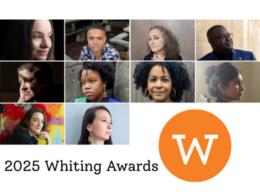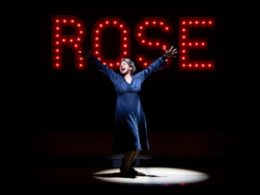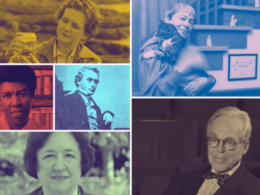From May 5 through June 4, 2011, at New York City’s Rattlestick Playwrights Theater, Suzanne Vega performed Carson McCullers Talks About Love, the one-woman show she wrote with Duncan Sheik. In the ninety-minute show Vega draws on McCullers’s own words to dramatize and sing about her life and work. For The Library of America Summer e-Newsletter, Rich Kelley conducted this exclusive interview with Vega about McCullers, who is represented in the LOA series by Carson McCullers: Complete Novels.
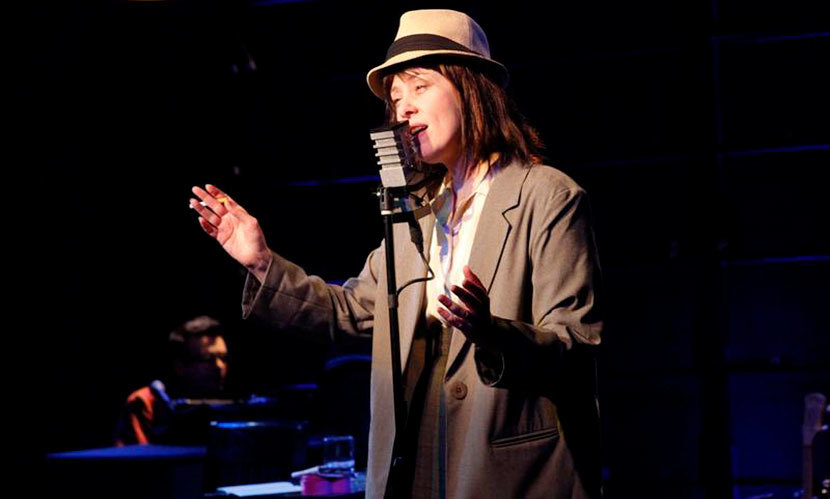
LOA: In previous interviews you’ve mentioned discovering Carson McCullers as a teenager and, at Barnard College, adapting some of her short stories into songs for an undergraduate thesis. Now, some thirty years later, you’ve just finished a month-long run of Carson McCullers Talks About Love, the one- woman show you wrote about her. What is it about McCullers’s work that has kept her such a presence in your life all this time?
Vega: It’s really more like four years spread out over thirty. There were years when the project had to take a back seat to raising my daughter and being on tour. The things I find compelling about Carson McCullers are: First, her character. Brilliant, funny, droll, compassionate, bitchy, needy, but never pathetic. Second, her work itself. Her social vision—so unusual in a girl her age when she wrote The Heart Is a Lonely Hunter—beautifully and humanely rendered in language and imagery. And yet odd and unique at the same time. Her details resonate with me. For example, Mick Kelly takes an art program sponsored by the government—I was that kind of child.
LOA: You collaborated with Duncan Sheik on the fourteen songs that help tell the story of McCullers’s life. How did you work out which aspects of her life would be included?
Vega: Some moments were obvious: Carson imagining New York City, as well as her rivalries with other authors. Other moments were suggested by Kay Matschullat, the director, or Dave Van Asselt, the artistic director of the theater. “Song of Annemarie (Terror, Pity, Love),” for example, about McCullers’s feelings for Annemarie Clarac-Schwarzenbach, was suggested by Kay.
LOA: Most people know you as a top-selling singer-songwriter. Reviewers of your show discovered another Suzanne Vega. Metro New York found you “a convincing and affecting actress” and Backstage wrote “Vega’s charisma, Kay Matschullat’s canny staging, and McCullers’s singular persona make the stage glow with warmth and humor.” What was the most difficult part of bringing Carson McCullers to life?
Vega: The most difficult thing was implying her disabilities and her pain with- out actually impersonating them. I was a trained dancer for years, so I first approached her character from the outside in, by looking at her photographs and mimicking her body language. I watched films of her and got a sense of her animation. And I listened to tapes of her speaking. She is a very idiosyncratic speaker with long pauses and a distinctive vocal sound. I found most of her character easy to slip into.
LOA: The McCullers in your play has a winning feistiness but she’s not always entirely likable. In one memorable song, “Harper Lee,” she sings:
Virginia Woolf, she leaves me cold.
I recognize the genius, but I’m twice as bold. I have more to say than Hemingway.
Lord knows, compared to Faulkner, I say it in a better way.
She goes on to sing that her Ballad of the Sad Café is better than The Great Gatsby and pokes fun at Harper Lee because she “only wrote the one book” compared with McCullers’s “more than three.” Did all of these sentiments really come from her writings?
Vega: Her actual phrase about Virginia Woolf comes from a transcript of a lecture she gave at the 92nd Street Y with Tennessee Williams. She says that she is a genius, but doesn’t “send her, as they say in the theater, the way Katherine Mansfield does.” She did actually say “I have more to say than Hemingway,” and “Lord knows, I say it better than Faulkner.” The quote about Ballad of the Sad Café—I found it on Amazon, written in a review by a reader. She didn’t say it about herself, but I thought she would have liked it. Of course she actually was a Fitzgerald fan. I made up that line about Harper Lee and the “one book.” However, she did say that Harper Lee was “poaching on my literary preserves.” The whole verse about Truman Capote “plagiarizing her cadences” is taken verbatim from the biography The Lonely Hunter by Virginia Spencer Carr.
LOA: Did your feelings about McCullers change as you researched her life?
Vega: There is a deep dark side to Carson McCullers. Her ambition is certainly part of that. But I knew that years before I started this play. So my feelings didn’t change. When I was doing the research there were times when I felt myself to be in dialogue with a needy dark presence even beyond the grave. I accepted that.
LOA: Which is your favorite of her works?
| READ THE NOVELS |
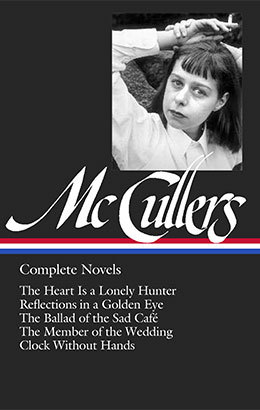 |
| Carson McCullers: Complete Novels |
Vega: I love The Heart Is a Lonely Hunter the best. Her ability to write both the male and female characters is remarkable, and the character of Dr. Copeland is one I know from my own life growing up in East Harlem and New York City in general. I love the lack of romance in a girl so young. I was impressed by the vision that Dr. Copeland has near the end of the book—of a march on Washington for civil rights. She wrote this scene almost twenty-five years before it actually happened.
LOA: One of the catchiest songs in the show is “New York Is My Destination.” McCullers arrived in New York at the age of twenty-two to find her first novel, The Heart Is a Lonely Hunter, had become a literary sensation on display in every bookstore window in the city. You also had the experience of becoming a pop sensation in your twenties. Did you find similarities in your experiences?
Vega: Yes, I shared that experience of being an early success. However, we had many more differences. I never had the problems that she had with her health, for example.
LOA: You have McCullers tell one somewhat ersatz joke in the play about censorship and brunch that even the band members don’t get. Was this the kind of joke McCullers told?
Vega: That joke was taken directly from the transcript of that same lecture she gave at the 92nd Street Y. It took a few listenings for me to make sense of it myself. However, in the context of her own lecture, it was well received. The audience in 1954 laughed uproariously and applauded. Maybe the word “brunch” had just become common around that time. . . .?
LOA: What will happen next with Carson McCullers Talks About Love?
Vega: I feel it needs some work on the “book.” So I will take some time this year and spend it re-writing and re-approaching certain parts of her life and figuring out how best to tell her story.
Video: Suzanne Vega performs “Harper Lee” on WNYC’s Soundcheck
